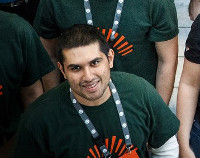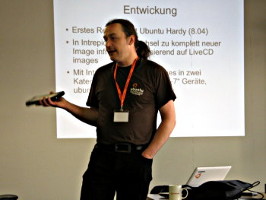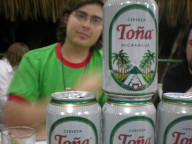![]()
Welcome to the Ubuntu Weekly Newsletter. This is issue #302 for the week January 28 – February 3, 2013, and the full version is available here.
In this issue we cover:
- Smart Scopes
- Announcing Ubuntu User Days Feb 9-10th
- Ubuntu Stats
- Ubuntu Ohio Holds Educational Session
- The World’s Largest Barcamp is in Myanmar
- Ubuntu App Developer Blog: Develop locally, run remotely
- Jonathan Carter: Ubuntu Developer Summit for 13.04 (Raring)
- Ubuntu Classroom: Ubuntu Developer Week: Days 1-3
- Ubuntu Women: Ubuntu Women Full Circle Follow Up with Laura Czajkowski
- Alan Bell: Ubuntu Smart Scopes
- Ubuntu Classroom: Interested in helping with Quality? Several sessions next week!
- Victor Tuson Palau: [Ubuntu QML] SimpleToDo.. done!
- Charles Profitt: Friendly Needs You!
- In The Press
- In The Blogosphere
- Other Articles of Interest
- Featured Audio and Video
- Weekly Ubuntu Development Team Meetings
- Upcoming Meetings and Events
- Updates and Security for 8.04, 10.04, 11.10, 12.04 and 12.10
- And much more!
The issue of The Ubuntu Weekly Newsletter is brought to you by:
- Elizabeth Krumbach
- Jasna Bencic
- Jim Connett
- And many others
If you have a story idea for the Weekly Newsletter, join the Ubuntu News Team mailing list and submit it. Ideas can also be added to the wiki!
![]() Except where otherwise noted, content in this issue is licensed under a Creative Commons Attribution 3.0 License BY SA Creative Commons License
Except where otherwise noted, content in this issue is licensed under a Creative Commons Attribution 3.0 License BY SA Creative Commons License









